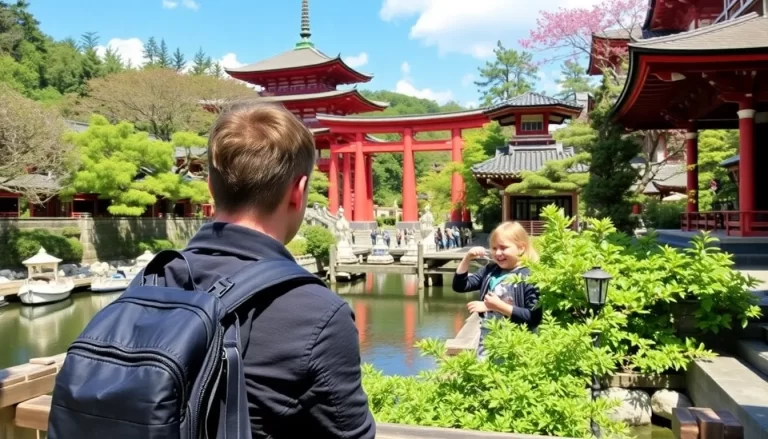Traveling can be one of the most enriching experiences in life, but it can also bring unexpected challenges, particularly when it comes to relationships. When you’re on the road with someone, the dynamics change, and small issues can escalate into significant conflicts. Understanding how to manage these situations is essential for maintaining harmony during your adventures.
In this article, we delve into the complexities of traveling with a partner, particularly focusing on conflicts that may arise and how to handle them effectively. From the pressure of tight schedules to the exhaustion of long journeys, we explore the factors that can contribute to disagreements and provide insights on how to navigate them.
Fighting before a trip: Common triggers
Often, tensions can build even before you embark on your journey. Pre-trip arguments may stem from various sources, including:
- Destination Disagreements: Partners may have different preferences for travel locations, leading to tension.
- Budgeting Issues: Discussions about how much to spend can become heated, especially if one partner is more frugal than the other.
- Packing Preferences: Disputes may arise over what to bring or how to pack efficiently.
- Itinerary Planning: Conflicts can emerge over the planned activities, the pace of travel, and the overall agenda.
Recognizing these potential triggers can help couples prepare for and mitigate conflicts even before they occur.
How to avoid fights in public: Strategies for traveling couples
When you’re out in public, the stakes feel higher, and fights can not only escalate but also become embarrassing. Here are some strategies to prevent public disputes:
- Set Clear Expectations: Before you travel, discuss what you both want to get out of the trip. Understanding each other’s expectations can minimize misunderstandings.
- Establish a Code Word: Agree on a discreet word or phrase to use when tensions rise. This can prompt a break or a reminder to reset the conversation.
- Practice Active Listening: Make sure to listen to each other’s concerns completely before responding. This encourages empathy and understanding.
- Take Breaks: If you feel an argument brewing, don’t hesitate to suggest a short break. A quick walk or a moment apart can reset emotions.
Implementing these strategies can help maintain a peaceful atmosphere while traveling.
How much fighting is too much in a relationship?
It’s normal for couples to fight occasionally, but recognizing when conflicts become excessive is crucial. Signs that fighting might be too frequent include:
- Constant Arguments: If you find yourself arguing over trivial matters regularly, it may indicate deeper issues.
- Emotional Withdrawal: If either partner starts to shut down emotionally, it can signal that the fighting is taking a toll.
- Recurring Themes: If the same issues keep cropping up without resolution, it’s important to address them constructively.
Understanding the frequency and context of your arguments can lead to healthier communication and conflict resolution.
What is the best way to stop fighting? Effective techniques
Stopping fights before they escalate requires intentional effort from both partners. Here are some effective techniques:
- Stay Calm: Keep your voice calm and avoid shouting. This sets a tone that encourages a rational conversation.
- Focus on the Issue: Stick to the present argument without dragging past grievances into the mix.
- Use “I” Statements: Frame your feelings by saying, “I feel…” instead of “You always…” to prevent your partner from feeling attacked.
- Seek Solutions Together: Instead of focusing on winning the argument, work together to find a compromise.
By applying these techniques, you can foster a more constructive dialogue and minimize conflicts.
How to move on after a fight: Healing and resolution
After an argument, it’s essential to find ways to reconnect and heal. Here are some strategies for moving on:
- Apologize Sincerely: If you feel you were in the wrong, a genuine apology can go a long way in mending fences.
- Discuss the Fight: Once emotions have cooled, talk about what went wrong and how to prevent similar conflicts in the future.
- Engage in a Fun Activity: Doing something enjoyable together can help reset the mood and strengthen your bond.
Taking these steps can facilitate healing and help reinforce a supportive relationship.
The unique challenges of traveling together
Traveling brings unique challenges that can test even the strongest relationships. The combination of exhaustion, unfamiliar environments, and the pressure of logistics can amplify stress. Understanding these challenges can help you navigate them effectively:
- Fatigue: Long travel days can leave both partners cranky and easily irritated.
- Different Travel Styles: One partner may prefer a slow-paced journey while the other thrives on a packed schedule, leading to potential clashes.
- Unforeseen Circumstances: Delays, lost luggage, or changes in plans can spawn frustration and arguments.
Being aware of these challenges can encourage couples to approach them together as a team rather than adversaries.
Building a resilient relationship through travel
Ultimately, fighting while traveling doesn’t have to spell doom for your relationship. In fact, navigating conflicts can help strengthen your bond. Here are some ways to build resilience:
- Communicate Openly: Regularly check in with each other about feelings and concerns during the trip.
- Celebrate Small Wins: Acknowledge successes together, whether it’s making it to a destination or resolving a conflict.
- Learn Together: Use travel as an opportunity to grow as a couple by facing challenges and learning from them.
By approaching travel as a chance to deepen your connection, you can turn potential conflicts into opportunities for growth.







